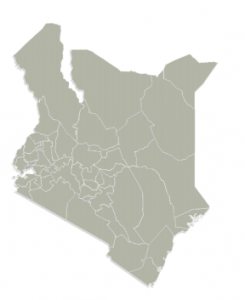| CATEGORY: | NGO |
| CSA PROJECT: | a) Building Institutional Capacity for Equitable and Inclusive Governance of Climate Smart Agriculture b) Building the Resilience and Enhancing Adaptive Capacity of Women to Climate Change. c) Expanding Economic Opportunities of Women, Youth, and Vulnerable Groups (WY&VG) in a Changing Climate. d) Increasing Adaptive Capacity and Environmental Resilience of Grass-Root Communities through Capacity Building, Identifying Gender Responsible Climate Change Adaptation Options in agriculture |
| SCALE: | National |
| PERIOD OF THE PROJECT: | 2019-2021 |
| GRANT SIZE OF THE PROJECT: | USD 486,000 |
Inclusive Climate Change Adaptation For A Sustainable Africa (ICCASA)

Summary of Actions
- Evaluation of new and existing climate-smart and gender sensitive and socially inclusive CSA strategies
- Information sharing and exchange on gender responsive and socially inclusive CSA practices and technologies through the Digital Gender and Climate Change Platform
- The co-development and co-implementation of CSA practices and technologies
Influencing gender and socially inclusive CSA policy and strategies
Context
Climate change is closely linked to Gender Equality and Social Inclusion (GESI), affecting women, men, youth, the elderly, the poor and the rich differently. In Kenya, women, youth and the elderly are severely affected compared to men due to the rigid and restrictive social and cultural roles and responsibilities.
These rigid restrictions give rise to difference in vulnerabilities and ability to adapt to the change climate.
In particular, addressing gender inequality and social exclusion is essential to achieving sustainability and resilience in agriculture. High levels of inequality and exclusion makes it harder to increase productivity, enhance resilience, and mitigate against the impacts of climate change.
Objective
Building Institutional Capacity for Equitable and Inclusive Governance of Climate Smart Agriculture
- To training policy makers on mainstreaming gender and social inclusion into climate change and CSA
- To develop training manuals on gender and social inclusion for climate change Initiatives
- To Improve the capacity of national governments, NGOs, private sectors, CBOs and local institutions to formulate and promote gender responsive CSA interventions, risk reduction strategies and plans, set up and/or improve mechanisms deliver integrated and timely early warnings.
- To provide a digital gender and climate change platform for information exchange
- To provide an interactive digital data hub for date on gender and climate change for all the 47 counties in Kenya
Building the Resilience and Enhancing Adaptive Capacity of Women to Climate Change.
- To identify barriers and constraints to women’s participation in CSA initiatives
- To enhance adaptive capacity and resilience of women through adoption of CSA practices and technologies
- To reduce rural women’s agricultural and domestic workload through labor-saving CSA practices and technologies
Expanding Economic Opportunities of Women, Youth, and Vulnerable Groups (WY&VG) in a Changing Climate.
- To link women, youths, indigenous groups to climate smart agribusiness opportunities
- To provide weather and agro-advisory services to women, youths, indigenous groups through SMS
Capacity building of women and youth along the CSA value chains
Increasing Adaptive Capacity and Environmental Resilience of Grass-Root Communities through Capacity Building, Identifying Gender Responsible Climate Change Adaptation Options in agriculture
- To identify and disseminate CSA options that are gender responsive and socially inclusive
- To link vulnerable populations to affordable credit and financing mechanisms
- To increase the number of Women, Youth, and Vulnerable Groups (WY&VG) participating and benefiting from CSA practices and technologies.
- To identify create employment opportunities for Women, Youth, and Vulnerable Groups (WY&VG) at different implementation stages of CSA initiatives
- To identify and disseminate climate-resilient post-harvest storage for Women, Youth, and Vulnerable Groups (WY&VG)
Participation In Key Climate & Agriculture Networks
Gender equality and equity, Social Inclusion, Vulnerable Groups, Climate Smart Agriculture, Climate
change, Research, Scaling up, Networking
Involvement in CSA
Relevance of CSA MSP to Work
- Research
- Policy formulation
- Knowledge dissemination
- Technology transfer
- Coordination and networking
- Communication
- Information about CSA
- Networking
- Learning and exchange
- Reporting and showcasing
- Develop new business
- Influence policy environment
- Data sources
Recommendation On Ways To Support MSP
- Developing specific climate smart agriculture policies, legislations, strategies, plans
- Dissemination of climate smart agriculture knowledge and technologies
- Developing capacities of key actors involved in climate smart agriculture implementation
- Mobilizing actors and facilitating dialogue on climate smart agriculture issues/actions
- Conduct research to provide scientific evidence: gender and social inclusion research
- Monitoring, evaluation and audit of climate smart agriculture aspects to enhance accountability
- Supporting coordination of actions
What Approaches Are You Using To Implement CSA
- Agroecology
- Conservation Agriculture
- Sustainable Agriculture
- Sustainable Land Management
- Landscape Management
- Good agricultural Practices
- Disaster risk reduction
- Ecosystem based adaptation
- Post-harvest management
Key Interventions
| BEYOND FARM LEVEL | TARGET BENEFICIARIES | INDICATORS MONITORED |
| Gender (Youth and Women inclusion in CSA) | 125,000 | Types of index insurances that women are accessing (e.g., crop or livestock) |
| Policy and Advocacy | 90 |
|
| CSA based access to markets and value chains |
125,000 |
|
| Financial Investments |
|
|
| Information access |
|
|
| Decision making and participation |
125,000 |
|
Lessons Learned and Challenges in Implementation of CSA Project
- National Governments should drive the CSA Agenda, with support from other Stakeholders
- Integration of CSA Practices and Technologies throughout the Agriculture Value Chain
- Encouraging Private Sector Engagement in CSA
- Ensuring Gender-Responsive and social inclusion perspective in design and implementing of CSA Initiatives
- Establishing Digital Platforms/Hubs and Fostering Networks, Partnership to Boost information
- Sharing and Scaling Up of CSA
Relevant Links & References
Contact Address in Case of Follow Up
Name: Mary Nyasimi
Email Address: mnyasimi@gmail.com
mnyasimi@iccasa-africa.org
info@iccasa-africa.org
Mobile: +254713066611
